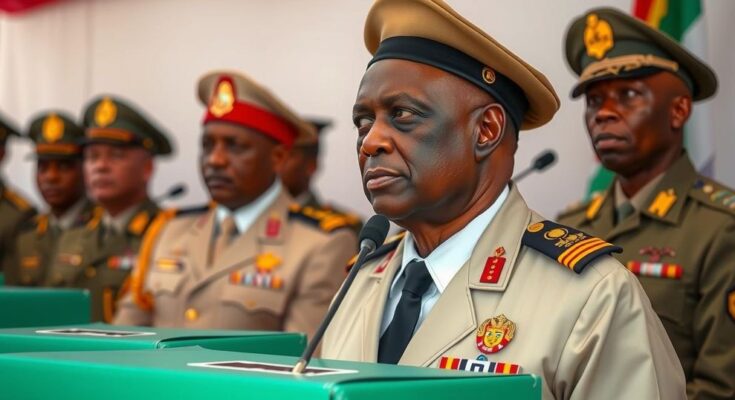Chadians voted in parliamentary elections ending a three-year military transitional period, but major opposition groups boycotted the polls due to concerns over election credibility. This electoral event marks the first parliamentary elections in over a decade, with approximately 8 million registered voters. The political climate remains tense in post-electoral Chad, grappling with military influence and security challenges.
On Sunday, Chadians participated in a parliamentary and regional election, marking the conclusion of a three-year military transitional period. However, this election was notably boycotted by the primary opposition groups due to their claims that the electoral process lacked credibility and transparency. This electoral event represents Chad’s first parliamentary elections in over a decade and is set to elect 188 legislators to the newly established National Assembly, along with provincial and municipal representatives.
The elections are particularly significant as they follow a disputed presidential election in which Mahamat Idriss Deby, the leader of the military junta, previously triumphantly declared victory. Deby assumed power in 2021 after the death of his father, former President Idriss Deby Itno, who ruled for thirty years. With approximately 8 million registered voters in a nation of 18 million—many of whom live in poverty—the results are expected to be announced in about two weeks.
Different factions among the opposition, notably the Transformers party represented by Succes Masra, have labeled the elections as a mere facade aimed at legitimizing Deby’s prolongation in power. Masra had previously run for president and asserted that the election results would be manipulated, advising the electorate, “It is better to stay at home.” The political landscape has seen many parties, including the Group of Cooperation of Political Actors (GCAP), calling for a boycott amidst persistent disputes regarding Deby’s presidential win.
Chad faces critical challenges, including threats from Boko Haram insurgents and deteriorating relations with France, one of its traditional allies. According to political scientist Mahamat Oumar Adam, the essential matter of this election is the urgency to restore democracy and not allow the nation to remain in a prolonged transitional state. He pointed out that while this election is a step toward overcoming the transitional phase, the absence of significant opposition raises concerns about its legitimacy.
Chad’s political climate has historically been tumultuous, with transitions of power often influenced by military coups and external pressures. Following its independence from France in 1960, Chad has struggled to establish a stable and legitimate democratic governance structure, highlighted by the recent military rule. The transition initiated in 2021 aimed to restore democratic governance after the death of long-time President Idriss Deby. Current elections are critical not only for Chad’s internal stability but also for broader regional implications in the Sahel, where many countries face similar challenges of governance and security. As such, the recent boycott by the opposition highlights ongoing tensions and the difficulties in achieving a truly democratic electoral process.
In conclusion, the parliamentary and regional elections in Chad, which were held amid a significant boycott from opposition groups, represent a complex moment in the country’s path toward democracy. As this marks the end of a challenging transitional period following military rule, the legitimacy and recognition of the electoral process remain in question. The atmosphere leading into the elections illustrates the profound challenges Chad faces in solidifying a democratic governance structure against a backdrop of political unrest and security threats.
Original Source: abcnews.go.com




